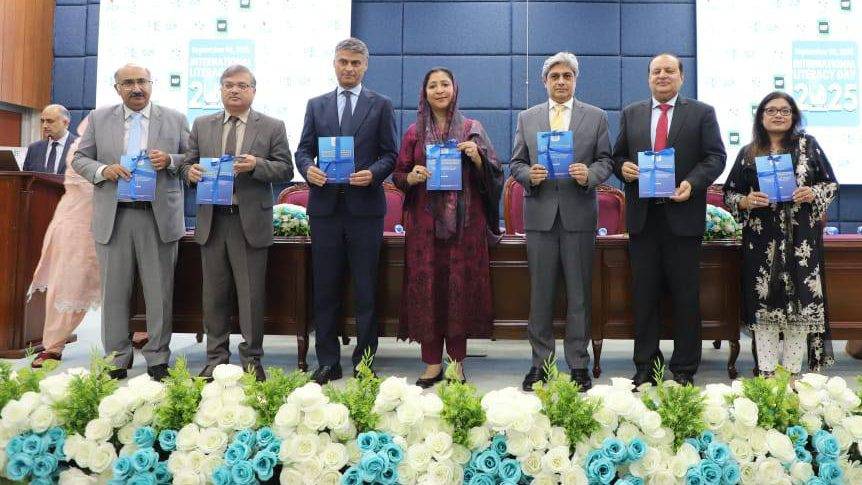In a renewed effort to address Pakistan’s pressing education crisis, the government has unveiled a strategy that links traditional schooling with skills development, making education a gateway to long-term employment. Minister of State for Federal Education and Professional Training (MoFEPT), Wajiha Qamar, highlighted the initiative on Monday at a ceremony titled ‘Promoting Literacy through Digitalisation’, organized in collaboration with Jica-AQAL, the Pakistan Institute of Education (PIE), and the National Commission for Human Development (NCHD).
Minister Qamar said that financial pressures force many children to abandon education and enter the workforce at a young age. “By linking education with skills, such children can be brought back to classrooms as parents will see both education and long-term livelihood opportunities for their children,” she noted. She underscored that collective ownership, community involvement, and addressing economic challenges are key to reversing dropout trends. She also praised the use of digital platforms, such as TikTok, for literacy awareness campaigns launched in partnership with the Ministry of IT.
At the ceremony, Minister Qamar and Federal Education Secretary Nadeem Mahbub introduced two major initiatives: the ‘Non-Formal Education (NFE) Teachers Professional Development Framework’ and the ‘NFE Monitoring and Evaluation Mechanism’. Both programs form part of the ministry’s wider reforms in non-formal education.
Secretary Mahbub stressed that literacy is both a fundamental right and a foundation for social and economic stability. He outlined ambitious targets to enroll 25.3 million out-of-school children and extend literacy opportunities to 70 million adults. Key strategies include the ‘Each One Teach One’ campaign, flexible education pathways, and the adoption of e-learning platforms. Importantly, students completing five grades in the non-formal system will now receive certification from the Federal Directorate of Education, enabling their transition into formal grade six.
The event also brought insights from stakeholders across the education sector. AIOU Vice Chancellor Dr Nasir Mahmood cautioned that while policy frameworks are in place, implementation remains the greatest hurdle, with literacy rates struggling to keep up with population growth. NCHD Director General Ali Asghar announced that 100,000 identified out-of-school children will be brought into the education system this year.
Related: Pakistan Floods Shut Down Schools for Millions
Presentations by DG PIE Dr Mohammad Shahid Soroya, Jica specialist Bilal Aziz, and UNESCO Country Representative Fuad Pashayev shed light on literacy trends and digital interventions, reaffirming their continued support for improving literacy outcomes in Pakistan.



